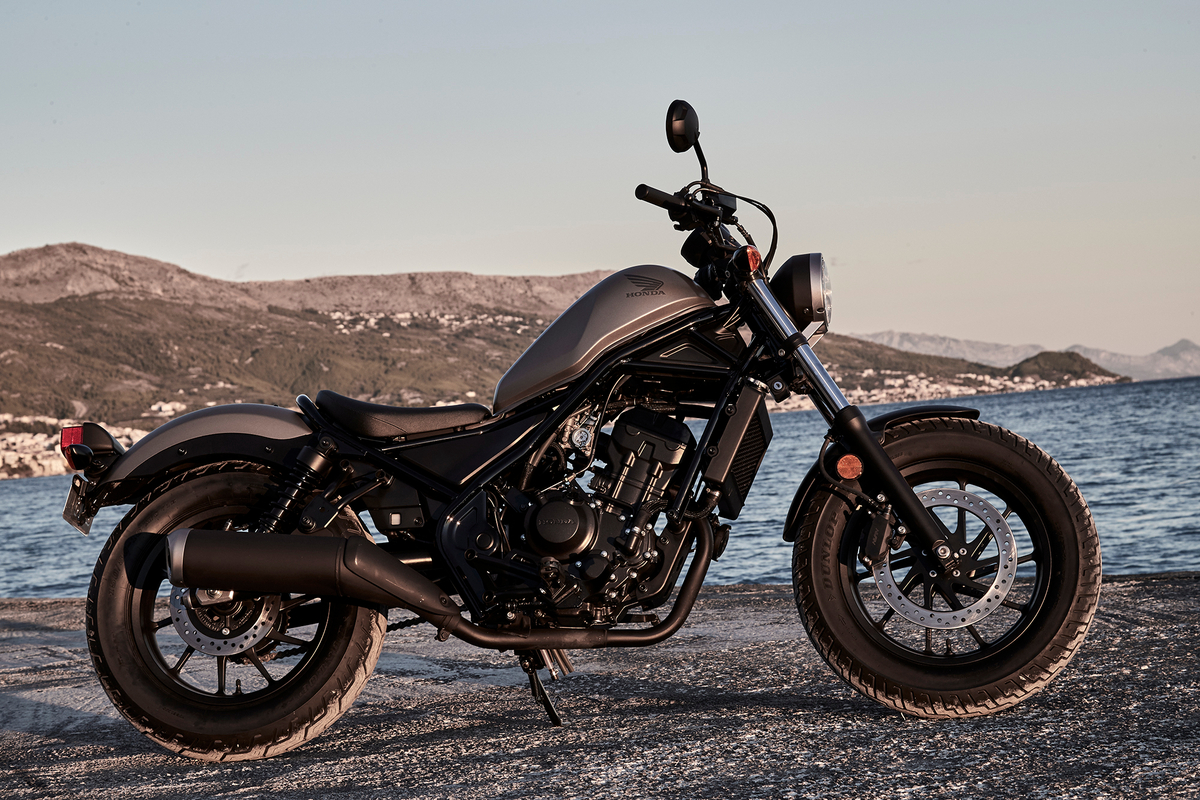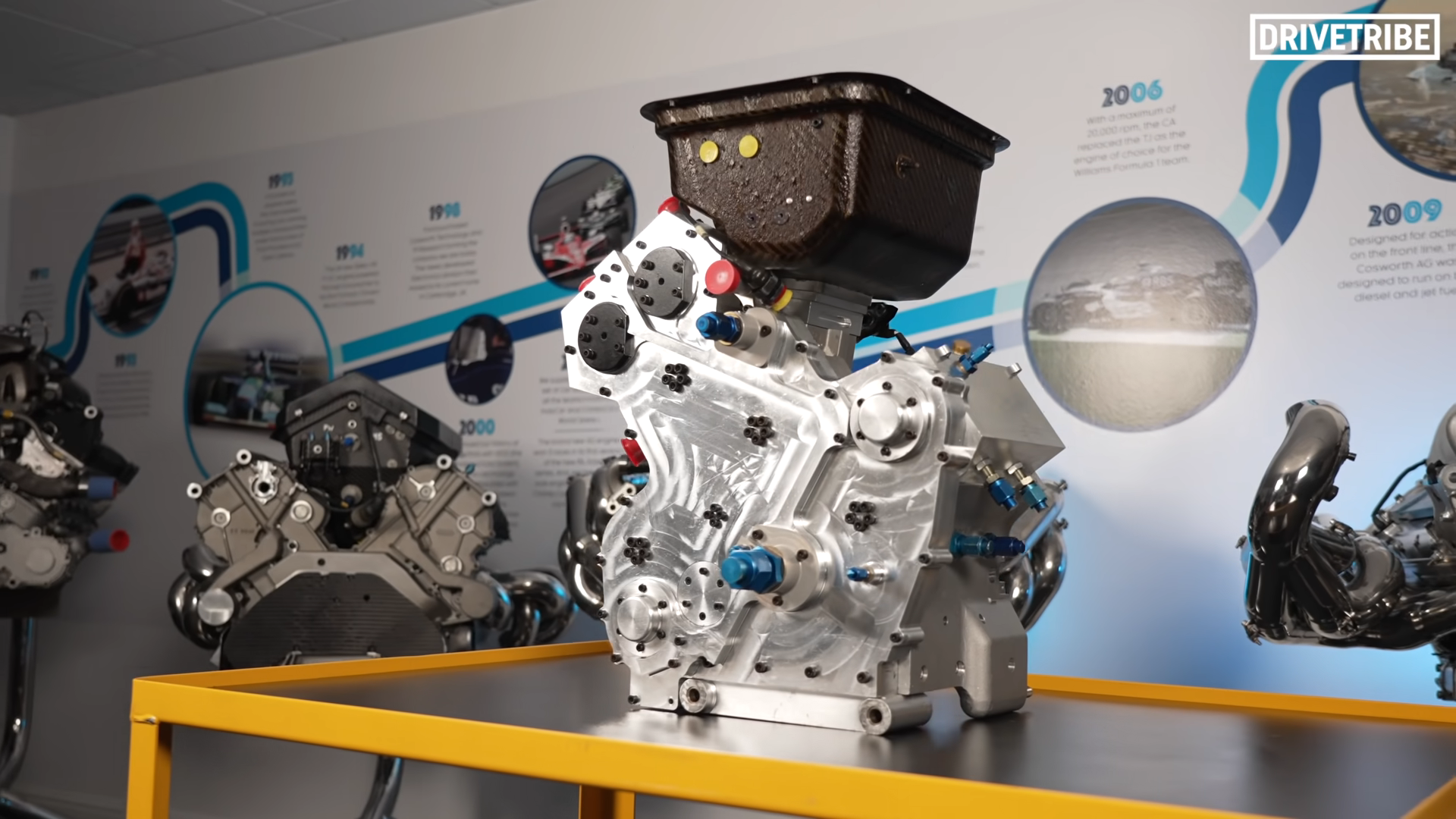Cosworth Once Built A Single-Cylinder F1 Engine That Hit 20,000 RPM
Cosworth was making small-scale engine tests long before the Valkyrie
We've all heard of Cosworth's three-cylinder engine test bed, used to develop the 1,000-horsepower V12 for the Aston Martin Valkyrie. Dedicated Cosworth fans may even have seen the company's other three-cylinder test engine, used for the Gordon Murray T.50. But few people have ever seen this: The 90 HP, single-cylinder test engine that led to the company's three-liter Formula 1 V10.
Back in the late '90s, Cosworth was still putting engines in Formula One cars. When developing those screaming ten-cylinders, the company needed a way to test things like piston rings, cams, and head design. To do that without shelling out for ten full cylinders every time, Cosworth took a shortcut — it built just one tenth of its TJ engine. Take a look:
The test engine is more stoutly built than the TJ V10 it Pokémon-evolved into, but the core elements are there. It hits the same screaming 20,000 RPM as the race engine, and delivers exactly one-tenth the power. Torque, unfortunately, is left unsaid — but the phrase, "You'd probably have to get up to 14 [thousand RPM] to get off the line," implies there isn't much on the low end.
While that redline and displacement combination would be right at home on some of the wildest '90s small-displacement sportbikes, the test engine's design looks shockingly modern. Take a look at the Honda Rebel 300, and you'll see what I mean. The angle, the shape of the head — it turns out there are only so many ways to shape 300 high-revving cubic centimeters.

While Cosworth is known for its V10s and V12s, these tiny one- and three-cylinder engines are almost more interesting. Not only do they serve as great examples of the incredible specific outputs Cosworth can achieve, they would also be incredible motorcycle or economy car engines — that is, if Cosworth ever made more than one of them.
